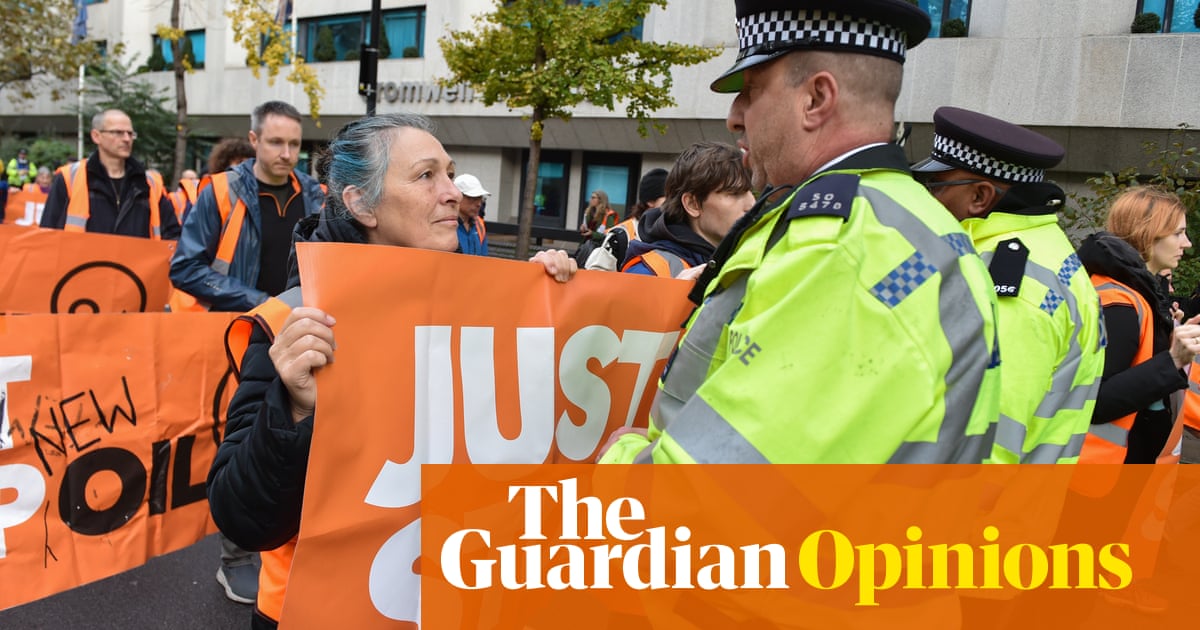
t’s been a rollercoaster couple of years for anyone interested in the future of the planet. From thinking we’d forever shout from the sidelines at politicians who’d never listen, to 4 million of us, spurred on by schoolchildren, taking to the streets across the world to demand climate action. Then a pandemic that has reminded us how fragile and interwoven with nature our global communal life can be. And now to a government that has pledged to “build back greener” – putting the climate crisis front and centre of its story. But how far should we trust Boris Johnson’s ambitions for Cop26, dubbed the “green games”, this year? Well, in this case, it’s the raw data we should look to – and it tells a deeply alarming story.
Green Alliance’s latest tracker of government climate policy shows that, following a decade of hard-won carbon reductions (which should rightly be celebrated), unless there’s a serious step-change in climate action, the UK’s emissions may start to creep up again. It takes time for policy to take effect and, even on a generous reading of recent government initiatives, the UK’s greenhouse gas emissions will still be nearly 40% higher in 2030 than where we need them to be to give us the best chance of meeting the legally binding 2050 net-zero target. In essence, the data shows that the UK has been coasting for a while, living off the benefits of its highly successful decision in 2015 to kick coal off the electricity grid. But power is just one of many sectors that make up the loud thrum of the country’s economy, all with climate impacts. Every policy to a degree now will be shaped by concerns around climate change, and the hard truth is that the prime minister needs the unreserved support of all his cabinet colleagues to meet his green ambitions.
The former energy and climate secretary Amber Rudd recently described UK climate progress as “swings and roundabouts”. The wind turbines might be spinning, but when it comes to greening our homes, we are just going round and round. The latest scheme, the government’s green homes grant, was supposed to be the flagship policy for its Covid green recovery plan. Yet, in less than a year, it has been scrapped by a Treasury that is yet to grasp either the enormity of the ecological crisis or the scale of the economic opportunity.
Transport is by far the largest emitting sector, responsible for over a third of UK carbon emissions, but recent announcements have been inconsistent. Banning the sale of new petrol and diesel cars by 2030 is a genuinely “world-leading” climate policy, but the spring budget froze fuel duty for the 11th year in a row. The plan to cut air passenger duty for domestic flights contrasts sharply with France’s proposed ban on flights for journeys that could easily be taken by rail. The UK’s long-awaited Transport Decarbonisation Plan is due imminently – and this will need to be a credible roadmap to a zero-carbon transport system, one that also helps to tackle the air-pollution crisis that plagues our towns and cities.
The extraction and processing of resources to make consumer products is responsible for over half of global carbon emissions and 90% of the destruction of nature – yet the prime minister’s 10-point plan for a green industrial revolution missed a crucial 11th point on reducing resource use. The “whack-a-mole” strategy of targeting only some types of waste, such as plastic straws and stirrers, is so far short of what is needed and doesn’t do anything to prevent extraction in the first place. Our dependence on ever-increasing consumption can’t be tackled without a clear plan. A legally binding UK target to halve resource use by 2050 would focus minds in the same way climate targets are doing.
Johnson has said that nature loss is happening at a “frightening rate”, committing his government to taking immediate action. But the continued delays to the flagship environment bill and the England tree and peat strategies strike a strong note of discord between the rhetoric and what is really going on. Whatever the prime minister says, there is a distinct lack of government urgency to restore nature. As one of the least wooded countries in Europe, with our rivers in a dire state and nature in freefall, warm words must lead to tangible action right now to drive forward nature recovery. The environmental land management scheme, the government’s new system for funding climate-friendly projects on farmland across the country, must go beyond pilot schemes, so it can actually deliver on its promise to nurture a rural economy that works for nature and farmers alike.
So, all in all, although we’ve come quite far, there is still a very, very long way to go. Understandably, in dealing with the pandemic, other priorities have been put on hold, including the complex, long-term policy-making required to bring an end to the fossil fuel era. But now, as we “unlock” the economy again, that has to change – and the bottom line is this: that if Johnson wants to be seen as a climate leader, he needs to whip his cabinet into shape. No more coal mines approved under an out-of-date planning system. No more departmental dithering on insulating leaky homes and the rolling-out of new, cleaner heating systems. No more free rides for polluting forms of transport. The prime minister needs to make sure that the whole of government understands the urgency of the climate crisis, and that every minister in every department understands that our collective future on this planet must be at the very heart of their work.
Chris Venables is head of politics at the Green Alliance












